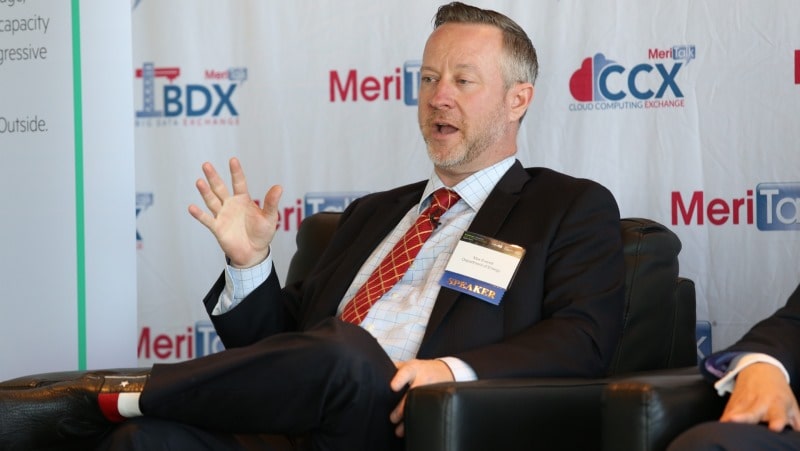
Max Everett, CIO at the Department of Energy (DoE), said Thursday he was “optimistic” about the agency’s progress on a host of IT issues, including network architecture, cloud adoption, data governance standards, and cybersecurity.
“We have to have a strategy across the whole agency,” said Everett–speaking at the Veritas Public Sector Vision Day event–listing strategy among what he termed IT challenges at the agency, along with “having [data] governance standards across a very federated department.”
He also said his office is working on improving enterprise architecture in areas including taxonomy, “a data roadmap, and a plan.’
Everett said the agency is working to define artificial intelligence (AI) opportunities that will leverage expertise at DoE’s National Laboratories, and what he called a “great data pool.” He also said DoE was looking to stand up a big data platform for cybersecurity, and planned to apply AI to that effort.

He said DoE is working with its national labs, using artificial intelligence and high-performance computing, to analyze Veterans Affairs Department data as a way to search for new disease cures, calling it “a great area of cooperation.”
“Interagency cooperation is going to be a big driver for us going forward,” he said, adding that cooperation also may include the private sector.
On cloud adoption, Everett said DoE put its first loads in a “commodity cloud” last year, and indicated the pace of cloud adoption will pick up. “We are a little behind the 8-ball” but catching up, he said. He also talked about challenges to DoE cloud adoption, saying dumping data into data lakes “concerns me” as those lakes “pretty soon become stagnant ponds” without the proper governance.
On the cybersecurity front, Everett said he was emphasizing data privacy as part of the user experience, saying, “the best cybersecurity dollar we can spend is on user experience.”
Everett also noted the passage of several data-centric laws last year including the Department of Energy Science and Innovation Act, which authorized scientific research activities and programs at DoE, and fixed the mission of DoE’s Office of Science to deliver “scientific discoveries, capabilities, and major scientific tools to transform the understanding of nature and to advance energy, economic, and national security.”
The CIO said the bill will have the effect of more rapidly communicating science and research funded by DoE’s national laboratories, and that measurement of output from the labs will take separate work to gather and manage data.
